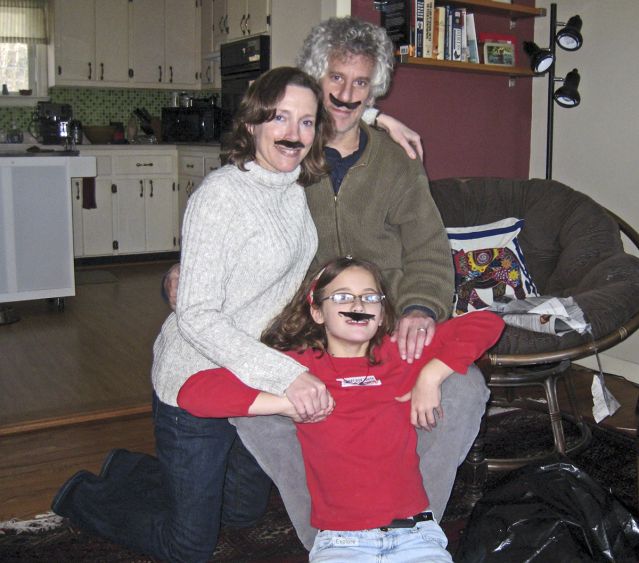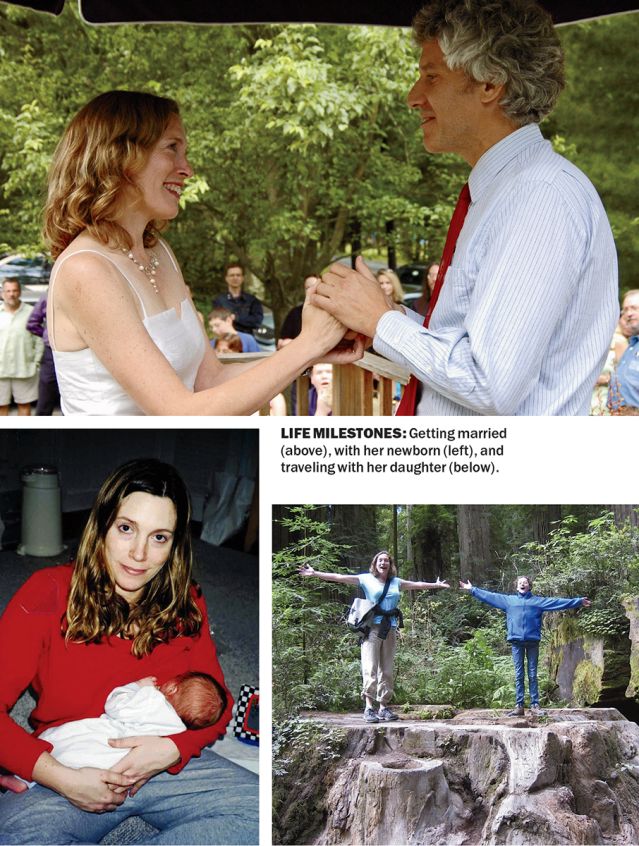What Does It Mean to Be A Grown-Up?
Embracing playfulness is important at any age.
By Sue Sanders published January 4, 2022 - last reviewed on January 4, 2022

I pulled my great-grandmother’s calico dress over my 8-year-old frame, excess fabric draping behind me like a ballgown. Slipping on a pair of her black patent leather pumps, I clomped over to the mirror and spun around, admiring my reflection. I was certain I looked like a small but elegant adult. I had no idea what I wanted to be or what I wanted to do once I grew up, but I was certain I would dress like this each day.
In my early twenties, fresh out of college and backpacking around Australia, I felt neither grown up nor adult-like. Surrounding myself with other young people in their late teens and early twenties, I reveled in that suspended state of prolonged adolescence. With a big world to explore and adventures to be had, adulthood could wait. Supporting myself with money saved from waitressing back home and odd jobs on the road, adulthood still felt distant—at least several months away. As I camped in the outback under the stars of the southern hemisphere, ones that looked different from those I remembered, and washed my hands in sinks where water twirled backwards down the drain, everything, including my future, was slightly off kilter. I knew I’d grow up once I returned home.
A year later, I was working as a middle school teacher. I was in charge of young people and heavy with that responsibility. I arrived early at school and stayed late, preparing lessons and chatting with students who lingered in my classroom. When a girl came sobbing after a spat with her now ex-best friend, I helped her navigate the drama. I was an official adult: I paid my rent and taxes. I flossed my teeth. But I still felt as if I were playing a role: I was the adult authority figure who secretly didn’t feel grown up in a room full of children. But I wasn’t worried; I was convinced that it would happen soon.
To me, there’s a fundamental difference between being an adult and being a grown-up. An adult is someone who is mature and trustworthy—a contributing member of society. We strive to become adults. Many of us know someone from our past who never reached that goal, someone who spends life constantly partying and avoiding responsibility. When I encounter non-adults, I tend to pity them and flee. “Grown-up,” however, is a state of mind. Our bodies get older but something inside us doesn’t feel as if it’s progressing as quickly. There’s a slight disconnect between how we view ourselves and how we feel we should view ourselves. I look in the mirror and see gray hair and wrinkles, but I don’t feel that old. My mirror must be broken.
Though I finally sensed I was very much an adult by my twenties, I was still waiting to transform into a grown-up. I felt as if I were impersonating one, putting on a serious grown-up personality the way I played dress-up when I was little, pulling my great grandma’s frocks over mine. Any minute they would slip off my shoulders and the real me would come tumbling out. I’m not alone. When I googled “adult not feeling grown up” more than a billion (!) results popped up. I scrolled through page after page and discovered dozens of forums mostly dedicated to young adults in their twenties and thirties commenting how they don’t feel grown up and wondering when it would happen. Maybe it never will. I now have my AARP card, and I’m still waiting.
At one point, I half expected the President of Grown-Upness to appear, in a snazzy herringbone suit and fedora, the corners of his eyes crinkling around his monocle as he smiled. “Congratulations! You’re now one of us,” he’d say, baptizing me with a martini over the head as cool jazz played in the background. This has not yet happened, and I’m beginning to suspect it never will.
My life marched on. I married my longtime boyfriend and had a baby at 34. I was a conscientious mom—even when I had no idea what I was doing, which was often. As I mashed bananas and spooned the goop into my daughter’s grinning mouth, I was always the responsible adult. I babyproofed the house, placed detergent in a high cupboard, and made sure I didn’t accidentally leave her in the car, but it still felt as though I were faking it as a grown-up. Surely Mary Poppins, clutching her umbrella, would plummet into the nursery and chide me for not cutting the organic strawberries into small enough pieces.
A few years later, I buckled my daughter into her stroller and dashed up the hill to the park, making vroom-vroom noises as we raced to meet a friend. As our toddlers chased each other around an oak tree, my friend and I confessed that we didn’t feel like real grown-ups. Could it be because we were temporarily stay-at-home moms and our lives felt in limbo? Or was it that we rented small apartments filled with thrift store furniture and we assumed the real grown-ups in our neighborhood owned professionally decorated brownstones? We assured each other that we’d feel more grown up once our kids started preschool.
In the following decade, I hit an assortment of adulthood markers. I recycled, and I made my own pizza dough. I got divorced and, eventually, remarried. At our small wedding, my husband and I served guests snow cones and Fudgie the Whale ice cream cake as our kindergartener daughter and her friends played freeze tag in our yard.

I worked and co-parented and chaperoned school field trips to pizza parlors, to apple orchards, to museums. One museum became my 6-year-old’s favorite. During a visit, she requested the “Richard Triceratops Room,” so we headed to the maze-like Richard Serra sculptures. What do adults who don’t feel grown up do when confronted with a giant maze? I looked at my daughter, smiled, and shouted, “Run!” And so we did, holding hands and laughing wildly. When we emerged, breathless and giggling, I brushed a strand of hair from her sweaty forehead as I tried to avoid eye contact with the nearby docent who glared at us. I suspect he would have prefered adult museum-goers who acted grown up.
As our daughter grew, we ate family dinners each night, sitting around the table discussing our days, as well as other topics—my husband and daughter got into a spirited debate over which friend would be the most delicious to eat.
Over the following years, we enforced curfews, monitored sleepovers, and drove carloads of teenagers to track meets and speech-and-debate tournaments hours before sunrise. My adult side sometimes had to sternly reprimand the non-grown-up one. At a track meet where my daughter did a personal best, I wanted to leap from the stands, rush over, and hug her. I didn’t, since adult-me knew that would embarrass her. Our daughter left for college. Through it all, I was always the responsible adult. And yet…the whole time there was that niggling doubt that I was still not a “real” grown-up.
When our daughter was on the high school speech-and-debate team, the coach told students that if they didn’t know the subject matter for a particular event, they could still do well if they sounded as if they did: With confidence, they could fake it. They just needed a bag of tricks.
Sometimes I feel that’s how I’m tackling life, faking it with a bag of tricks.
When I was a young adult and living in New York City, I’d watch with fascination as packs of commuters streamed through Grand Central Terminal during rush hour. Did they feel grown up?
To the casual observer clutching her bag of tricks, they certainly looked it. Could it have been their business attire? Maybe that was the uniform that transformed adults into grown-ups? I think about the Netflix period dramas I’ve binged on. The women in the twenties- and thirties-era films wore great hats. Could that be the key: a felt cloche? But even when I dress up, I still feel counterfeit.
When I turned 57 recently, it occurred to me that maybe I had it all wrong: I should stop waiting to feel grown up. Perhaps it’s simply a myth we’ve been led to believe, one that doesn’t necessarily happen.
What if we embraced this child-like part of ourselves and enjoyed it, guilt-free? If we’re responsible adults and do all the adult things like raise our kids the best way we know or navigate our relationships in a way that works, why should it matter if we don’t feel grown up deep inside? Would I even want that? I enjoy the decidedly un-grown-up-like subversive joy in occasionally sneaking a handful of chocolate-covered almonds with my breakfast toast. Or joining my husband on the driveway to watch a cotton candy–colored sunset so gorgeous I tear up. Would a real grown-up attempt to slide down giant sand dunes during a mother-daughter road trip to New Mexico?
My daughter, now 22, is an adult, but does she feel grown up? During that trip I didn’t ask. Instead, we played Trivia and talked about her plan to spend the following year overseas on a fellowship and her desire to work in refugee resettlement. Both parts of me—the adult and the non-grown-up—burst with parental pride. Later, before we returned to our hotel, we stopped for sweets; for a few glorious moments, we were simply two big kids in a candy store.
Maybe those of us who don’t feel grown up are doing fine as is. A variety of recent news articles discussed the importance of adult play, with studies showing it improves well-being and lessens stress. And although non-grown-ups don’t necessarily play games, we do embrace the playful side of life.
Or perhaps feeling grown up is a big scam—maybe many of us mosey through our lives, moving ahead and becoming responsible adults but never truly growing up. Not long ago, I visited my 81-year-old parents. They still hike and enjoy weekly yoga classes. Do they feel like grown-ups? I’ve viewed them that way all my life, but now I wonder. My mom gave me a batik wraparound skirt she bought in her early thirties, one I’ve long adored. Back home, I put it on and twirled in front of the mirror, just as I did when I was 8. I’m not sure that the outfit is grown-up enough for someone my age, but I don’t care. Maybe the speech-and-debate coach was right: If you don’t know it, fake it with confidence. So I do. I slip on some flats, grab my handbag, and head to the supermarket for dinner supplies. On my way, I drive down a hill, and, as I always do, squeal, “Whee!” At the store, I place broccolini and whole wheat pasta in my cart as Pat Benatar’s “Hit Me With Your Best Shot” is piped through the store’s speakers. I hum along confidently, feeling simultaneously 57 and 15.
Sue Sanders is a writer based in Tucson, Arizona, and the author of Mom, I’m Not a Kid Anymore: Navigating 25 Inevitable Conversations That Arrive Before You Know It.
